
Emily Conover
Physics, Senior Writer, Science News
Physics writer Emily Conover loves physics for its ability to reveal the secret rules about how stuff works, from tiny atoms to the vast cosmos. Before becoming a science journalist, she studied physics at the University of Chicago. There, she investigated the weird ways of tiny particles called neutrinos. She has previously written for the Milwaukee Journal Sentinel, Science Magazine and the American Physical Society. She is a two-time winner of the D.C. Science Writers’ Association Newsbrief award.

All Stories by Emily Conover
-
 Physics
PhysicsPhysicists foil classic oobleck science trick
Cornstarch and water — best known as oobleck — solidifies upon impact. Researchers used a new technique to make it stay liquid.
-
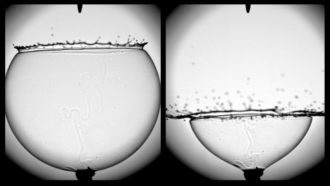 Physics
PhysicsSoap bubbles’ ‘pop’ reveals the physics of the bursts
A bubble’s pop is a quiet, high-pitched noise. This can reveal the forces that occur during the bubble’s demise.
-
 Physics
PhysicsThere’s science to making great fried rice
Scientists report finding the physics that seems to explain how chefs can quickly fry rice over a hot flame without burning the food.
-
 Animals
AnimalsDrones might one day capture a dolphin’s breath in midair
High-speed footage of dolphin spray reveals that droplets blast upward at speeds close to 100 kilometers per hour.
-
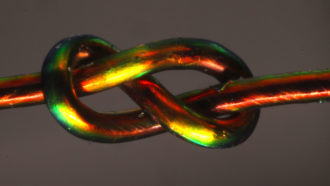 Math
MathColor-changing fibers help unravel a knotty problem
Experiments with colorful fibers helped scientists discover a few simple rules on why the strength of various types of knots differs.
-
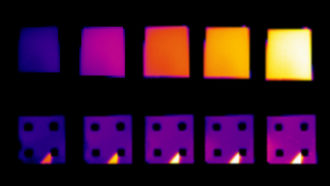 Materials Science
Materials ScienceHere’s how to hide some objects from heat-sensing cameras
A special coating that conceals temperature information from heat-detecting cameras might someday be used as a privacy shield.
-
 Physics
PhysicsGiving Notre Dame back her unique voice
A 2019 fire robbed Paris’ Notre Dame cathedral of more than her roof. She also lost her voice. Now scientists are using acoustics to return her unique soundscape.
-
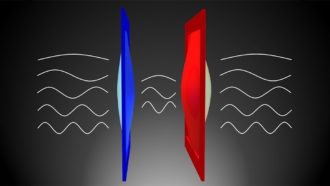 Physics
PhysicsHere’s how quantum mechanics lets heat cross a vacuum
Heat can move across a vacuum if the span is small enough. As in really, really small. In a new experiment, the gap was only a few hundred nanometers.
-
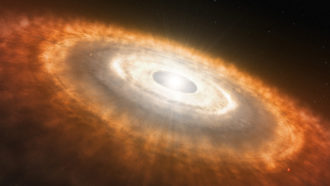 Planets
PlanetsGlass beads help scientists puzzle out how baby planets grow
Researchers have mimicked the first stages of planet formation in the lab. All they needed were glass beads and a catapult.
-
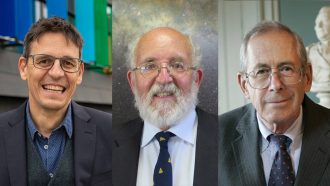 Planets
PlanetsPhysics Nobel rewards discoveries on cosmic evolution and exoplanets
This trio of scientists helped figure out the makeup of our universe. Two of them also identified the first known exoplanet orbiting a sunlike star.
-
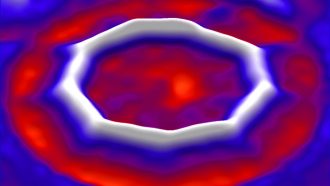 Chemistry
ChemistryChemists have created a ring-shaped form of carbon
A ring-shaped carbon molecule takes its place among buckyballs, carbon nanotubes and other odd forms of the element.
-
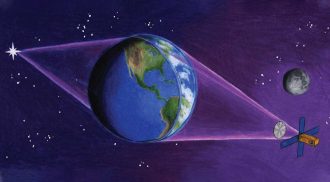 Physics
PhysicsThis idea would turn the Earth into a giant space telescope
One astronomer has a bold solution to getting around the high cost of building big telescopes.